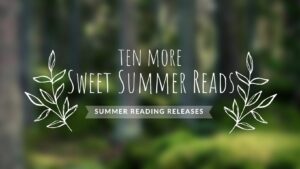Southern Fiction
The South has produced slews of stories and storytellers. And while just about anyone can identify a “Southern Fiction” novel when they start reading it, the genre is at once hard and simple to define.
The Book Genre Dictionary defines Southern Fiction as stories that are “set in the Southern United States, or are written by authors from that region. They are often about the culture and belief systems of that geographical location. The subject matter in the southern genre includes, but isn’t limited to: racism, Christianity, family values, community, justice, and social class.”
There may or may not be dialect included. Bleh.
Anyone from the South, or who has read some of the novels from Genre Dictionary’s article, will tell you that our stories are more absurd and more touching than a list of tropes. We pride ourselves on both our eccentricities and our hospitality. This is the place that will be brawling over SEC football one night and laughing over casseroles the next. We refuse to be defined by a list of tropes.
This is quite possibly why the South is such rich fodder for writers and artists. Anywhere there is a concentration of dualities, the tension makes great art.
And many contemporary Southern writers are pushing back against this oversimplified definition of Southern Fiction already. From an overwhelmingly white view of the South riddled with violence, poverty, and racism, but talks of sweet tea and plantations, a new generation of authors like Jesmyn Ward and Angie Thomas is rising up who are pushing boundaries and challenging our literary history. They’re looking at the same old stories and saying “This isn’t my story. Let me tell a new one.” They are tackling the Southern identity in a whole new way. I can’t wait to see where we go.
Southern Gothic
Southern Gothic takes these dualities one step further. Ok, sometimes a country mile further.
If you shake up the fantastical and the absurd of Southern daily life with a good haunting or serial killer or demon loosed from hell, you have a Southern Gothic. You really don’t need more of a definition than that. Also, there are as many forms of Southern Gothic literature as there are your run-of-the-mill Gothic. That is to say: endless. You can find anything from Grit Lit to Paranormal depending on your taste.
To write a Southern Gothic, all you need is to pay attention to the weird things people say and do around you and have a macabre imagination. If you want more of a tutorial, I suggest this highly entertaining article by Delilah Dawson, the queen of Southern Gothic. Or, you know, pay a visit to your local indie bookstore and load up on a few of these. Reading is the best form of learning.


